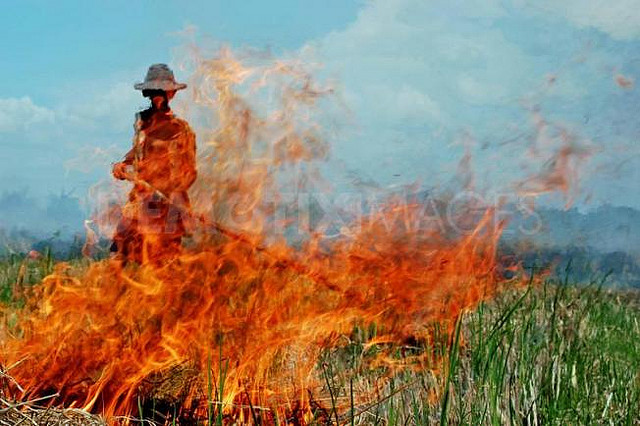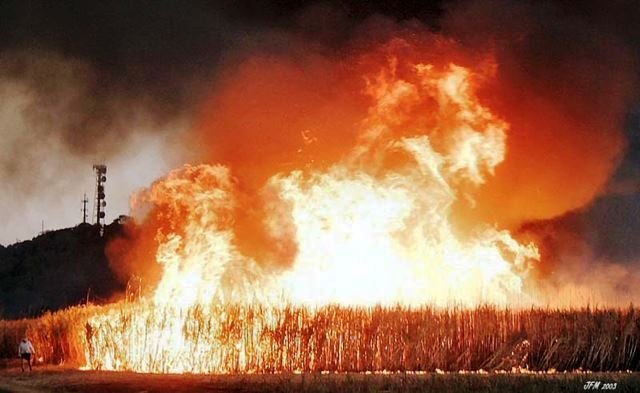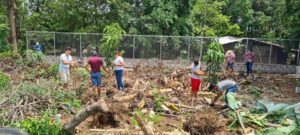
A Worker Burning Sugar Cane
The processed white granulated sugar in the canister in my kitchen is one of the many products I use without a thought of the all steps in its manufacture much less the hardships its workers endure in getting it to me. I learned a tiny bit about it by listening to Salvadorans, observing the conditions under which it is grown, and then following up with some research about some of my concerns.
It is late November, one of the two harvest times for sugar cane here in El Salvador. I am observing clouds of thick dark smoke clustered in specific low-lying level fields. When we visit communities downwind of these areas, without warning, we first smell the pungent, nauseating smoke. Not long afterward come the thin, black pieces of ash floating through the air – some 2”-4” long punctuating the otherwise clear blue sky.
It isn’t so much the mess it makes covering everything as it rains down so much as the thought of what it is doing to my lungs. Driving closer to those sugar cane fields, I see the workers there IN the fields – IN the smoke—IN the falling black ash – WORKING! How can they work for what 8 or 12 hours a day in those toxic environmental conditions?

Fields are apparently burned twice – initially to get rid of the leaves, weeds, debris, and pests such as snakes and scorpions before harvesting and then again after the harvest in order to re-plant the second crop. Thus the workers are exposed to four major burns a year. It costs less to burn the fields than to remove the debris by the workers.
Working in these fields is a death sentence. The air pollutants from the burns are teeming with secondary nitrates, sulfates, and carbon components. That results in allergies, eye problems, and respiratory health issues. More lethal than that are the long-term effects from the chemical exposure. We are told and research confirms that in El Salvador, and specifically in the Lempa River Valley chronic kidney disease is rampant in the cane workers. 50 is a common lifespan of a cane worker. From 2005-2009 deaths from kidney failure increased 26% killing 2800 men. There are entire cemeteries devoted solely to dead sugar cane workers.
I start asking questions, and this is what the locals tell me. In order to increase productivity of sugar cane, like most commercial crops, chemicals – five kinds of them– are required. Although there are laws “on the books” to prevent workers from getting too much chemical exposure, there is no regulation as the owners ignore those laws.
Who is responsible for providing safety gear for the workers? The individual workers themselves. What do they use? A handkerchief tied loosely over their mouths. Even their families living nearby report the same health problems when the chemicals leach into the soil and water supply.
Opportunities for employment in El Salvador are very limited; even more so in rural communities. Add to that the dimension of uneducated people further reducing options. When you have a family to feed and the cane fields are down the road and hiring, I guess one is willing to take the personal health risks in order to feed the family.
There are more sugarcane workers dying from kidney disease in Central America than from HIV/AIDS, diabetes, and leukemia COMBINED! That is unacceptable in this century! It is being called the Mesoamerican nephropathy.
See the following thorough study from the Center for Public Integrity for complete details on the findings, case studies, and implications of this situation. After reading it, you may think twice about adding an extra sugar packet to your morning cup of coffee and feel even worse about the uncaring attitude of our country.
http://www.publicintegrity.org/2011/12/12/7578/thousands-sugar-cane-workers-die-wealthy-nations-stall-solutions


